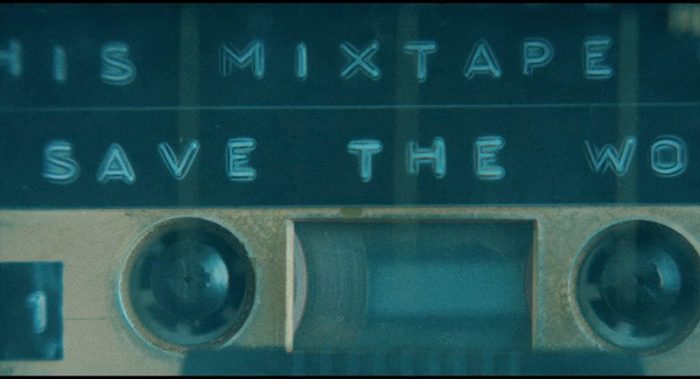'Starfish' Review: Mixtapes And Monsters Make For Ethereal, Alluring Post-Apocalyptic Horror [Fantastic Fest]
Al White's directorial debut is an enticing journey into the dark chambers of grief accompanied by a safety net of melodic guidance. No stranger to the music industry, White is commonly known as the lead singer of UK indie band Ghostlight, who impressingly provides the score and soundtrack to the entire film. The emotional gravity within their songs transforms an audible sadness and longing that White is able to visually convey in his atypical horror film, Starfish.
The film follows Aubrey Parker (Virginia Gardner), a young woman mourning the death of her best friend Grace (Christina Masterson). Uncomfortable in the presence of old friends and Grace's family members, she escapes the social obligation of her memorial early and breaks into Grace's apartment. Seeking comfort or closure, she tends to her abandoned pets and gently rummages through her belongings, reminiscing on their time together.
Hidden among all of Grace's relics, Aubrey discovers a mixtape labeled with the number seven. After playing it, she then wakes up to a snow-covered town with no connection to the outside world aside from a phantom voice on the receiving end of a walkie talkie that Grace kept on her bedside table. Clutching to the device for answers, this mysterious friend reveals a conspiracy with the numbered tapes that Grace left behind- messages and patterns that are able to ward off the beasts lurking in this new, abandoned world. Aubrey is forced to muster up the courage to trust both herself and the clues that Grace left behind for her in order to save herself and ultimately save the world.
The first act of the film sets the tone for an emotional journey and displays an artistic approach through the taxing grieving process. Within two minutes, Aubrey is standing over Grace's grave staring solemnly at her tombstone with the words "Always Right" chiseled into the granite. The leadership from Grace is quickly established while simultaneously revealing the trustworthy bond the two girls share. The scenes at Grace's wake capture the initial awkward stage of grief where denial is exemplified through Aubrey's clothing choices as she dons a mustard yellow sweater which brightly contrasts those around her shrouded in typical black attire. Since there is minimal dialogue in the film, symbolic imagery is pivotal to the plot and character development.

Set designer Fernanda Guerrero wisely chooses a hodgepodge of bohemian decor to reveal an intimate glimpse into Grace's interests and her intrigue with the beauty of the world around her. Focused shots of the food left in her cabinets, the messy stationery on her desk, and even the indentation of her pillow hollowed out with the last moments of sleep, strongly capture the limbo experienced after losing a loved one. These scenes also introduce the importance of music in the film. Ghostlight's soundtrack kicks off with lyrics like "even though I haven't seen you in years, your funeral is one I would fly to". It becomes clear that the songs played on each tape supply layered insight to the characters and the overall plot, which propels the storyline both forward and backward simultaneously in an interesting fashion.
Throughout the film, music is used as a guiding light that not only answers questions, but heals, transforms, and even transports our protagonist. Animation sequences, flashbacks, and relocation shots to other parts of the world reinforce the supernatural plot points of Grace's theory. Although obscure and disjointed at times, they serve as an allegory to the healing power of music and how it can alleviate the tormented stages of grief. While the pacing is slow, the overall delivery plays out like an extended music video with Gardner's strong performance anchoring the narrative.
The aesthetic of the film is beautiful, even ethereal at times, while the creature design takes a Lovecraftian approach through CGI instead of practical effects. The overall appearance of the monsters and their intimidating presence does not entirely extract you out of the story. However, their presence portrays a disconnect of danger as some scenes contain an intensity reminiscent of A Quiet Place, while others possess a dreamy, celestial feel calling to mind brief scenes from War of the Worlds.
White's use of sound invokes a sense of grief in a manner that is heartfelt and intimate. The disturbing, although natural, experience of death is a relatable foundation that he creatively tops with an allegorical storyline exemplifying the necessary need to face one's demons and motion through life's unpredictable pains. Additionally, his use of music and the nostalgic process of making mixtapes for the ones you love aptly supports the film's themes. An alluring and cathartic entry into the sci-fi/horror genre, Starfish plays to the beat of its own drum and ironically makes the end of the world seem quite beautiful.
/Film Rating: 6.5/10
